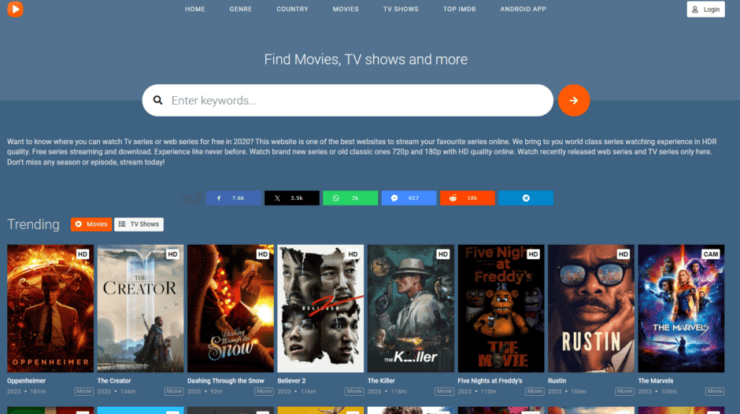
A financial management software (FMS) connects, produces, reports on, and maintains numerous cash flow transactions across the business. The basic function of any financial software for businesses is to count the money in circulation inside the organization, linked vendors, and consumers. In addition, it assists treasurers and finance managers in managing the transfer of resources. As a result, businesses of all sizes need a basic accounting solution to record credit and debit transactions.
Financial Management Software Purpose
For many years, businesses assumed that a complete financial management solution was only available to large and international corporations. However, the thinking process has shifted since many software as a service (SaaS) providers provide sophisticated on-premise or in-the-cloud FMS subscriptions at a low cost to attract businesses. SMBs are increasingly opting for scalable FMSs for the following reasons:
1 – An online or offline FMS tool will assist you in eliminating financial errors such as tax overpayment or underpayment, payroll errors, overpayment to vendors, etc. In this manner, your business may avoid wasting money and invest it in operations.
2 – Standard FMS solutions have a sophisticated reporting and analytics system. Well, with a few clicks, the leadership team can develop actionable business revenue reports to show investors historical, current, and prospective growth patterns across products and markets.
3 – SMBs should invest in financial management software to improve financial and data transparency across all departments. Otherwise, the leadership will have to depend on guessing and lose control over the company’s money.
4 – FMS providers update their tools as accounting rules and tax regulations change worldwide. As a result, you don’t need to hire a staff of accountants to manually incorporate the most recent tax changes or accounting standards into your book.
Must-Have Financial Management Software Features
You can’t simply go online and get any FMS tool. The tool must have typical features and functionalities to provide value for money. The following are the features of an excellent FMS tool:
1 – General accounting module includes accounts payable (AP), payroll, accounts receivable (AR), general ledger, and other functions.
2 – An FMS should also have specific cash, revenue, and treasury management tool.
3 – Your FMS platform should provide budgeting, planning, and forecasting functionalities.
4 – Governance, risk, and compliance tools in an FMS are required to guarantee your business complies with all local and international legislation.
The following is a comprehensive list of small and medium-sized businesses’ top financial management tools (SMBs).
5+ Best Financial Management Software You Can Use
Financial Management Software you can use in 2022.
[lwptoc]
1. Causal
Causal is a basic spreadsheet tool that works similarly to Excel but without the intricacies of Excel. This tool may be used by your accounting and finance team to execute complicated business finance calculations such as scenario planning, data forecasting, and data modeling. The tool enables easy and interactive data visualizations in freeform text, tables, and charts. Causal may also integrate business data sources like accounting software, ERP systems, and hosted databases. This enables your teams to access data from different sources and includes current or historical data in business reports. As a result, the product is suitable for startups, non-profit organizations, cryptocurrency businesses, finance, and marketing teams.
2. Workday
Workday is a well-known business app brand. Its finance management solution is one of its most popular tools. SMBs use this tool to concentrate on financial transaction analysis and planning rather than transaction execution. Workday regularly upgrades its tools and functionalities to ensure that your business remains competitive in the industry. For financial transaction anomaly detection, the Workday FMS tool leverages cutting-edge data processing technologies like machine learning, object data modeling, and in-memory computing. The tool may also provide intelligent and useful suggestions based on your business process and finances. As a result, with the Workday finance system, you will invest less time managing the routing transactions and procedures. As a result, you might invest time savings in business areas such as marketing and sales to increase revenue collection.
3. Xero
Xero is a sophisticated accounting tool that allows small and medium-sized businesses to record bills, send quotations to clients, invoice customers, scan receipts using Hubdoc, bulk reconcile transactions, and so on. You may, however, subscribe to their add-ons like Claim costs, Analytics, and Track projects to transform the accounting tool into a powerful FMS. It has extra built-in functionalities such as project finance monitoring, contact management, secure file storage, inventory management, etc. Xero includes all the accounting and finance features SMBs need to run their businesses effectively and profitably. The Xero dashboard, with its more than 20 features, will put you in command of your business’s money. The dashboard consolidates cash flow figures, account balances, bank reconciliations, outstanding bills, and specialized business products so you can monitor your company’s health.
4. Sage Intacct
Intacct has been the leading supplier of specialized cloud-based FMS tools for small and medium-sized businesses since 1999. It was the first to combine finance and accounting with cloud technology, putting the FMS tools online and accessible from anywhere. As a result, it has been the American Institute of Certified Public Accountants’ chosen source for sophisticated financial apps. Sage purchased Intacct in 2017 and rebranded the financial management tool as Sage Intacct. It has become an essential component of the Sage Business Cloud. To meet the demands of worldwide SMBs, the new FMS includes program components such as Core Financials, Advanced Functionality, Dashboards & Reporting, and Billing.
5. FinancialForce
FinancialForce is a well-known business for financial management, planning, and analysis. Its FMS ERP was built on the Salesforce development platform hosted in the cloud. The FinancialForce ERP can provide a complete and customer-centric business state due to clever software programming. As a unified FMS ERP, it unifies the front-end and back-end into a consolidated place, eliminating employee workflow confusion. As a result, the leadership team can access combined data for critical decision-making, while front-line employees may do their responsibilities effectively. With the FinancialForce tool, you get not just an FMS but also a slew of other business tools, such as:
1 – Professional services automation (PSA) solutions.
2 – Inventory management solutions.
3 – Invoicing and billing systems.
4 – Accounting and financial management systems.
As a result, your accounting, finance, and leadership teams will always access real-time data on operations and customers.
6. Kissflow
Kissflow is more than simply another financial management solution. It is a single tool that allows your finance staff to perform everything that an ERP tool cannot. As an example:
1 – Approve projects and procurement that adhere to internal and external financial criteria. This rule-based system allows
2 – You will never postpone any legal procurement, but you will always eliminate waste and wasteful acquisitions.
3 – Use role-based and need-to-know tool access to protect critical business data from employees.
4 – Consolidate all finance and operations data into a simple dashboard to make better choices.
Kissflow’s graphical user interface (GUI) and aesthetic aspects allow SMBs to easily personalize the app based on the products and services the business provides.
7. NetSuite Financial Management
NetSuite Financial Management is an FMS tool that seamlessly connects your business’s sales, back-office, and service activities. Its established and comprehensive financial management capabilities push any company beyond traditional accounting tools. NetSuite financial software assists you in the following areas:
1 – Financial books and ledgers are closed more quickly and without errors.
2 – Powerful spending management functionalities.
3 – Accountable and efficient revenue management.
4 – A real-time and comprehensive snapshot of the business’s financial health.
The tool is cloud-based, allowing employees and business managers to access the necessary data from distant places. There’s no need to install any other software, and all tasks may be completed using a lightweight web app. In addition, it features all required modules and tools for accounting, billing, budgeting, planning, financial reporting, revenue reporting, and so forth.
8. AccountsIQ
AccountsIQ is a cloud-based accounting tool that makes financial data processing, collection, and reporting easier and more accurate. It provides easy but complex tools for budgeting, consolidation automation, submitting digital VAT forms, auditing, and cash flow management. The AccountsIQ development team created the product with the requirements of businesses with several departments operating in silos in mind. Working in silos may be financially negative for small and medium-sized businesses.
As a result, using this FMS tool, your company’s numerous business entities, such as HR, payroll, accounts receivable, accounts payable, procurement, service delivery, and inventory, will be grouped. Furthermore, AccountsIQ has 250 report templates, dashboards, management reporting packs, Power BI connections, and Excel Add-Ins. In addition, the tool has a 6-dimension BI coding system that may be customized as well as a 3-tier General Ledger. Finally, these features enable you to use the FMS tool for performance benchmarking and reporting across all business sectors.
Conclusion:
Financial management software is essential for your company’s overall enterprise resource planning (ERP) tool. An FMS, like an ERP, combines financial and operational data into a centralized software system that business stakeholders and management may use to make decisions. You may manage your business money with any of the tools suggested above. These tools assist you in transforming your company into a digital one to transform financial data better while adhering to worldwide standards.


